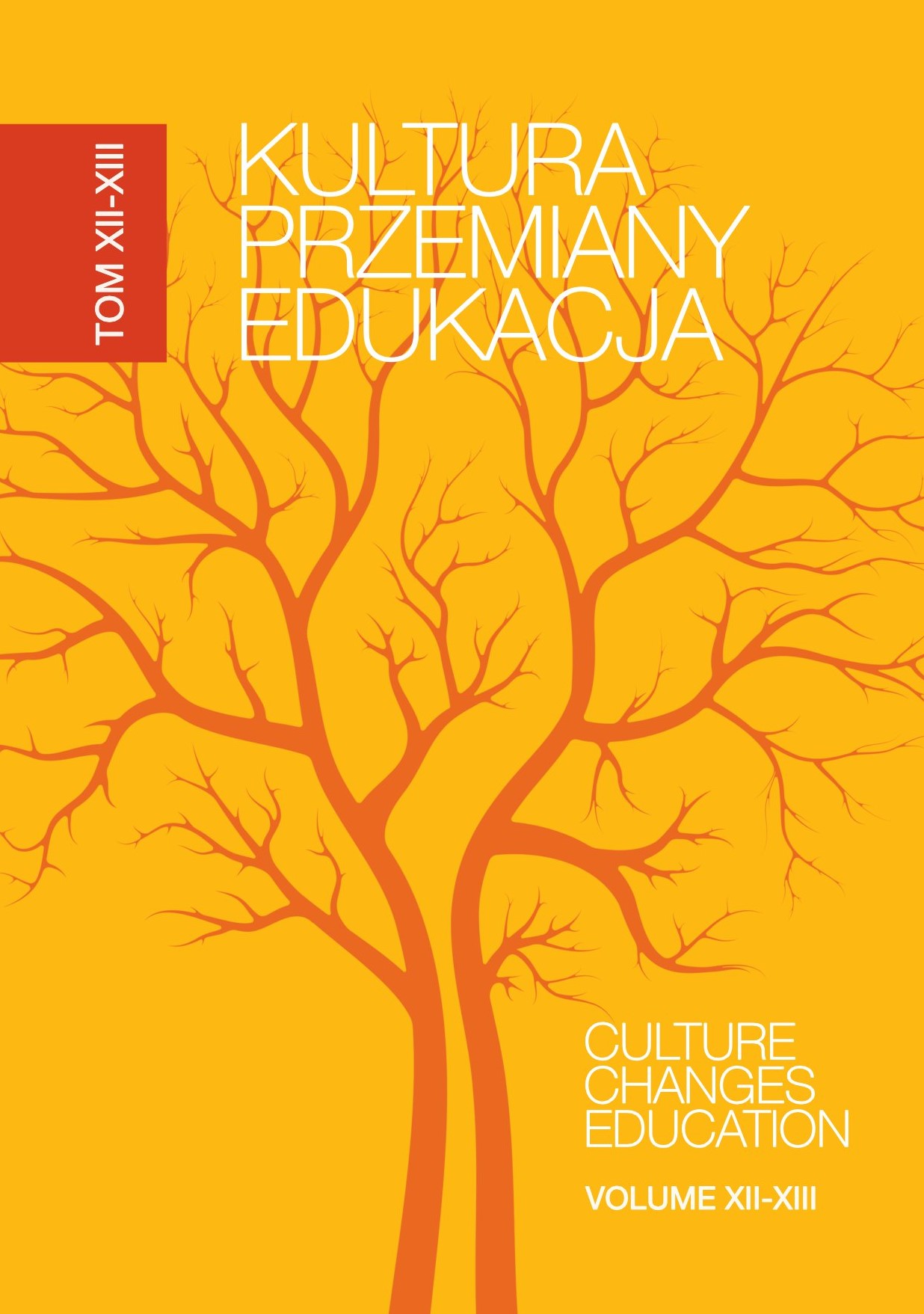As in „Tetris” – organization of time and work of academic teachers innovators: research report
DOI:
https://doi.org/10.15584/kpe.2023.12.21Keywords:
creative work, innovators, organization of time and work, ESA theoryAbstract
The aim of this study is to present the results of research concerning one of the aspects of creative didactic work of academic teachers innovators, which is the organization of their time and work. 13 academic teachers involving: inventing, implementing and popularizing new and useful didactic solutions within paradigms, concepts, models, methods, techniques and means of education took part in this qualitative research. At the stage of designing and implementing the research concept, the ESA theory of Howard E. Gruber was applied. The research used multiple, descriptive case studies, semi-structured interviews and analysis of the subjects’ publications and photos from their didactic classes. The analysis and interpretation of the obtained research results was carried out using the IPA model. After conducting an analysis of the research results, it was possible to outline images of individual strategies for the organization of time and work and common regularities in this area for all the examined innovators.
Downloads
References
Brower R., Constructive Repetition, Time and the Evolving System Approach, “Creativity Research Journal” 2003, Special issue: Festschrift for Howard E. Gruber, nr 15.
Dylak S., Architektura wiedzy w szkole, Warszawa 2013.
Erikson E.H., The Life Cycle Completed, New York 1998.
Flick U., Projektowanie badania jakościowego, Warszawa 2010.
Florida R., Narodziny klasy kreatywnej, Warszawa 2010.
Giddens A., Nowoczesność i tożsamość. „Ja” i społeczeństwo w epoce późnej nowoczesności, Warszawa 2001.
Gruber H.E., And the Bush Was Not Consumed: The Evolving Systems Approach to Creativity [w:] Towards a Theory of Psychological Development, red. S. Modgil, C. Modgil, Windsor 1980.
Gruber H.E., Creativity and Human Survival [w:] Creative People at Work. Twelve Cognitive Case Studies, red. H.E. Gruber, D.B. Wallace, New York 1989.
Gruber H.E., The Evolving Systems Approach to Creative Work [w:] Creative People at Work. Twelve Cognitive Case Studies, red. H.E. Gruber, D.B. Wallace, New York 1989.
Gruber H.E., From Epistemic Subject to Unique Creative Person at Work, “Archives de Psychologie” 1985, nr 54.
Gruber H.E., History and Creative Work: From the Most Ordinary to the Most Exalted, “Journal of the History of the Behavioral Sciences” 1983, nr 19.
Gruber H.E., Davis S.N., Inching our Way up Mount Olympus: the Evolving-Systems Approach to Creative Thinking [w:] The Nature of Creativity. Contemporary Psychological Perspectives, red. R.J. Sternberg, Cambridge 1988.
Gruber H.E., Wallace D.B., The Case Study Method and Evolving Systems Approach for Understanding Unique Creative People at Work [w:] Creativity, Psychology and The History of Science, red. H.E. Gruber, K. Bödeker, Boston 2005.
Ingarden R., Książeczka o człowieku, Kraków 1998.
Józefowski E., Creative Workshop as a Form of Contemporary Art and a Space for Subjective Development 1, „Practice and Theory in Systems of Education” 2015, nr 10.
Kant I., Krytyka czystego rozumu, Kraków 1957.
Korzeniecka-Bondar A., Codzienny czas w szkole. Fenomenograficzne studium doświadczeń nauczycieli, Kraków 2018.
Kowalkowska A., Tutoring zespołowy – know-how tutora i coacha, „Tutoring Gedanensis” 2018, nr 3.
Kuciapski M., Model for project management for development and implementation of e-learning courses, International Conference on Business Informatics Research, Berlin 2010.
Lasocińska K., Autobiografia jako autokreacja. Twórcze aspekty procesu myślenia autobiograficznego w edukacji dorosłych [w:] Biografie edukacyjne. Wybrane konteksty, seria: „Biografia i badanie biografii”, red. E. Dubas, J. Stelmaszczyk, Łodź 2014.
Lavery D., Creative work: On the Method of Howard Gruber, “The Journal of Humanistic Psychology” 1993, nr 33.
Markiewicz M., Bednarz J., Znaczenie metody case study w kreowaniu postaw przedsiębiorczych studentów i absolwentów szkół wyższych [w:] Efektywność innowacyjnych narzędzi dydaktycznych w procesach kształtowania postaw przedsiębiorczych, red. W. Bizon, A. Poszewiecki, Gdańsk 2013.
Mochocki M., Edu-larp as revision of subject-matter knowledge, „International Journal of Role-Playing” 2012, nr 4.
Okraj Z., „Splot aktywności” w twórczej pracy dydaktycznej nauczycieli akademickich, „Studia Pedagogiczne. Problemy społeczne, edukacyjne i artystyczne” 2020, nr 36–37.
Platon, Państwo, Warszawa 2010.
Platon, Timajos [w:] Dialogi, Warszawa 1993.
Pobojewska A., Edukacja do samodzielności. Warsztaty z dociekań filozoficznych. Teoria i metodyka, Łódź 2019.
Popiołek K., Percepcja czasu – czas codzienny i czas życia [w:] Czas w życiu człowieka, red. K. Popiołek, A. Chudzicka-Czupała, Katowice 2010.
Rostan S.M., In the Spirit of Howard E. Gruber’s Gift: Case Studies of Two Young Artists, Evolving Systems, “Creativity Research Journal” 2003, nr 15.
Smith J.A., Pietkiewicz I., Praktyczny przewodnik interpretacyjnej analizy fenomenologicznej w badaniach jakościowych w psychologii, „Psychological Journal” 2012, nr 18.
Sztompka P., Przestrzeń życia codziennego [w:] Przestrzeń życia codziennego, red. M. Bogunia-Borowska, Warszawa 2009.
Św. Augustyn, Wyznania, Warszawa 1987.
Tarkowska E., Czas w społeczeństwie. Problemy, tradycje, kierunki działań, Wrocław 1987.
Witerska K., Drama kreatywna – perspektywa rozwojowa, „Chowanna” 2011, nr 36.
Yin R.K., Studium przypadku w badaniach naukowych: projektowanie i metody, Kraków 2015.
Zaorska Z., Dodać życia do lat, Lublin 1999.
Zimbardo P., Boyd J., Paradoks czasu, Warszawa 2011.
Downloads
Published
How to Cite
Issue
Section
License
Copyright (c) 2023 KULTURA – PRZEMIANY – EDUKACJA

This work is licensed under a Creative Commons Attribution-NoDerivatives 4.0 International License.


